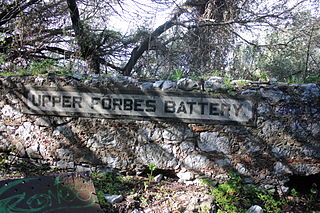| |||||
| Centuries: | |||||
|---|---|---|---|---|---|
| Decades: | |||||
| See also: | Other events of 1684 List of years in Ireland | ||||
Events from the year 1684 in Ireland.
| |||||
| Centuries: | |||||
|---|---|---|---|---|---|
| Decades: | |||||
| See also: | Other events of 1684 List of years in Ireland | ||||
Events from the year 1684 in Ireland.
February 18 is the 49th day of the year in the Gregorian calendar. There are 316 days remaining until the end of the year.

A tithe is a one-tenth part of something, paid as a contribution to a religious organization or maybe compulsory tax to government. Today, tithes are normally voluntary and paid in cash, cheques, or stocks, whereas historically tithes were required and paid in kind, such as agricultural products. Several European countries operate a formal process linked to the tax system allowing some churches to assess tithes.
March 25 is the 84th day of the year in the Gregorian calendar. There are 281 days remaining until the end of the year.
February 20 is the 51st day of the year in the Gregorian calendar. There are 314 days remaining until the end of the year.

Sir Edward Bayly, 1st Baronet was an Irish landowner and politician.
Events from the year 1741 in Ireland.
February 25 is the 56th day of the year in the Gregorian calendar. There are 309 days remaining until the end of the year.
Richard Nugent, 2nd Earl of Westmeath was an Irish nobleman.
Events from the year 1621 in Ireland.

Earl of Granard is a title in the Peerage of Ireland. It was created in 1684 for Arthur Forbes, 1st Viscount Granard. He was a lieutenant-general in the army and served as Marshal of the Army in Ireland after The Restoration and was later Lord Justice of Ireland. He had already succeeded his father as second Baronet of Castle Forbes and been created Baron Clanehugh and Viscount Granard in 1675, also in the Peerage of Ireland. The Baronetcy, of Castle Forbes in county Longford, was created in the Baronetage of Nova Scotia on 29 September 1628 for his father, Arthur Forbes.

Bernard Arthur William Patrick Hastings Forbes, 8th Earl of Granard,, styled Viscount Forbes from 1874 to 1889, was an Anglo-Irish soldier and Liberal politician.

The Royal Irish Regiment, until 1881 the 18th Regiment of Foot, was an infantry regiment of the line in the British Army, first raised in 1684. Also known as the 18th Regiment of Foot and the 18th Regiment of Foot, it was one of eight Irish regiments raised largely in Ireland, its home depot in Clonmel. It saw service for two and a half centuries before being disbanded with the Partition of Ireland following establishment of the independent Irish Free State in 1922 when the five regiments that had their traditional recruiting grounds in the counties of the new state were disbanded.

The 4th Royal Irish Dragoon Guards was a cavalry regiment in the British Army, first raised in 1685 as the Earl of Arran's Regiment of Cuirassiers. It was renamed as the 4th Dragoon Guards in 1788 and service for two centuries, including the First World War, before being amalgamated with 7th Dragoon Guards, to form the 4th/7th Dragoon Guards in 1922.

George Forbes, 3rd Earl of Granard PC was an Anglo-Irish naval commander and diplomat. He was at the Capture of Gibraltar. He took a very valuable prize ship and was briefly a Governor of the Leeward Islands. He took a role in politics, helping to end Robert Walpole's career, but eventually retired.
The Irish military diaspora refers to the many people of either Irish birth or extraction who have served in overseas military forces, regardless of rank, duration of service, or success.

Sir Arthur Forbes, 1st Baronet of Castle Forbes, County Longford, Ireland took part in the Scottish Plantation of Ireland, and died in a duel at Hamburg, Germany. His son was created Earl of Granard.
Events from the year 1760 in Ireland.
Events from the year 1680 in Ireland.
Events from the year 1672 in Ireland.
Events from the year 1685 in Ireland.
Arthur Forbes may refer to:
Events from the year 1735 in Ireland.
Events from the year 1781 in Ireland.
Events from the year 1696 in the Kingdom of Scotland.
George Arthur Hastings Forbes, 7th Earl of Granard KP, styled Viscount Forbes from 1836 to 1837, was an Irish peer and soldier.
William Stewart, 1st Viscount Mountjoy (1653–1692), was an Anglo-Irish peer and soldier.
Arthur Forbes, 1st Earl of Granard (1623–1696) was an Irish soldier of Scottish descent. He held the position Marshal of Ireland, commander of the Royal Irish Army during the reign of Charles II. A supporter of the Glorious Revolution, he fought on the Williamite side during the War of the Two Kings.
George Forbes, 4th Earl of Granard was an Irish soldier and politician.

Gen. Sir Josiah Champagné was a British military commander who was the fifth General Officer Commanding, Ceylon. He was appointed in February 1799 until 1799. He was succeeded by Hay MacDowall.